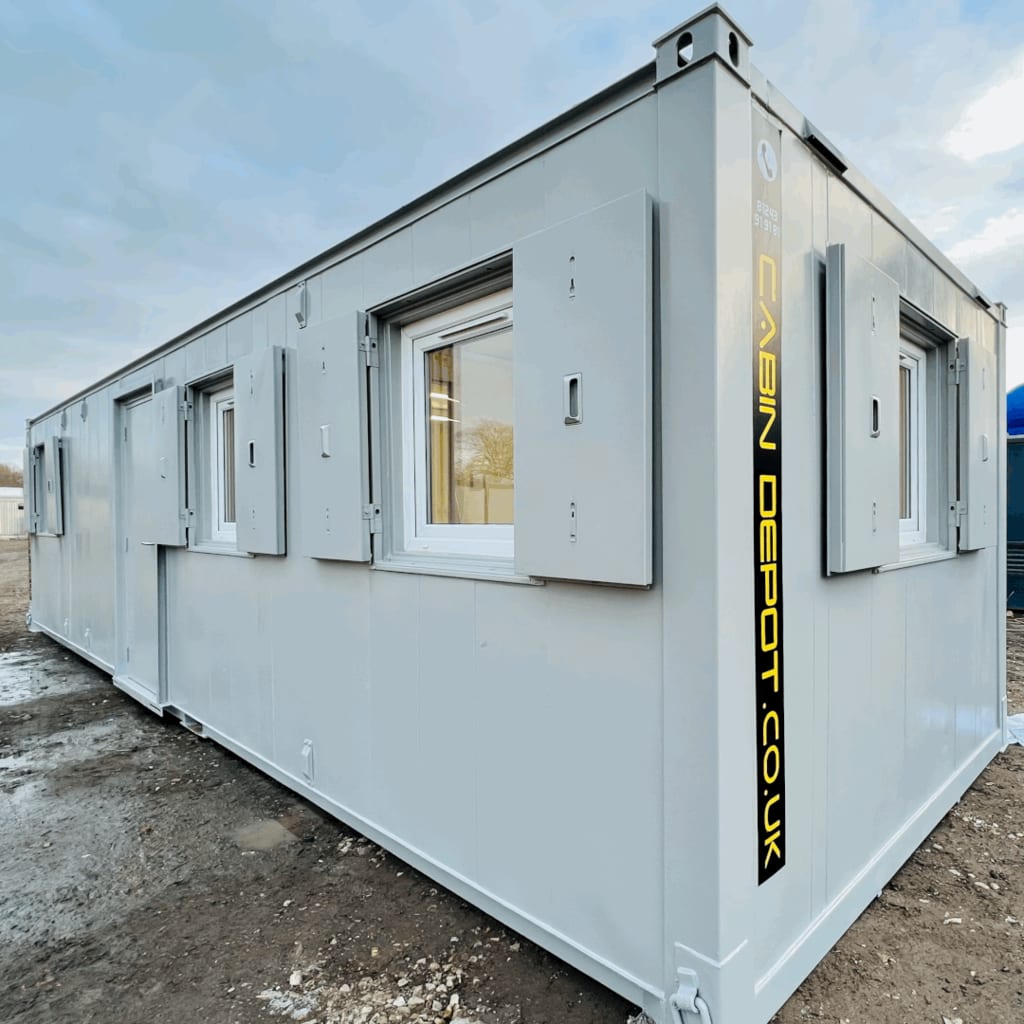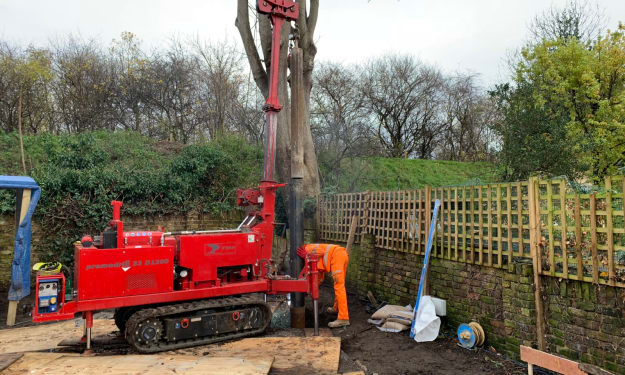
In recent years, the concept of mobile living has gained significant attention as an alternative lifestyle choice. With the rise of remote work and a growing interest in sustainable living, mobile living in cabins has become an appealing option for many individuals. However, it is essential to delve deeper into the psychological aspects of this lifestyle and explore how it affects mental health and well-being. In this article, we will examine the impact of mobile living on psychological well-being and provide insights into its benefits and considerations.
1. Flexibility and Autonomy:
One of the key psychological benefits of mobile living is the sense of flexibility and autonomy it offers. Individuals living in mobile cabins have the freedom to choose their living environment and adapt it to their preferences. This autonomy fosters a greater sense of control over one's life, which can positively impact mental health and well-being. The ability to change locations and surroundings at will can reduce feelings of monotony and increase overall life satisfaction.
Moreover, mobile living allows individuals to design their own schedules and routines, enabling a balanced lifestyle that aligns with their personal needs and goals. This flexibility provides an opportunity to prioritize self-care, engage in hobbies, and spend quality time with loved ones. By having control over their living arrangements and daily routines, individuals can experience a sense of empowerment and fulfillment, positively impacting their mental well-being.
2. Connection with Nature:
Mobile living often involves being closer to nature, as cabins are commonly located in natural surroundings such as forests, mountains, or coastal areas. Research suggests that exposure to nature can have significant psychological benefits, including reduced stress, improved mood, and increased attention restoration. Being immersed in natural environments while living in a mobile cabin can enhance overall well-being and contribute to a greater sense of tranquility and peace.
Nature provides a source of relaxation and rejuvenation, allowing individuals to escape the hustle and bustle of urban life. The serene surroundings of mobile cabins offer opportunities for activities such as hiking, camping, or simply enjoying the beauty of the natural world. These experiences promote mindfulness and present-moment awareness, which have been shown to reduce anxiety and enhance mental clarity. The connection with nature that mobile living offers can serve as a therapeutic outlet, promoting overall mental well-being.
3. Minimalism and Decluttering:
Mobile living in cabins often necessitates downsizing and embracing a minimalist lifestyle. By reducing material possessions and focusing on essential items, individuals can experience a sense of liberation from the pressures of consumerism. Studies have shown that decluttering and living with fewer possessions can lead to reduced stress levels, improved focus, and enhanced mental clarity.
In a mobile living setup, space is limited, which encourages individuals to prioritize what truly matters to them. The simplicity of mobile living can promote a mindful and present-focused mindset, which is beneficial for mental health. It allows individuals to detach from materialistic pursuits and find contentment in the experiences and connections that truly enrich their lives. The practice of minimalism in mobile living fosters a sense of freedom, as individuals are less burdened by material possessions and can focus on personal growth and self-fulfillment.
4. Challenges and Considerations:
While mobile living has its advantages, it is crucial to acknowledge the potential challenges and considerations for mental health. Living in a confined space with limited privacy and social interaction can sometimes lead to feelings of isolation and loneliness. It is essential for individuals adopting this lifestyle to establish a support network, maintain social connections, and actively engage in activities that foster human connection.
Mobile living often requires adaptability and resilience in the face of changing environments and circumstances. It can involve dealing with unpredictable weather conditions, technical challenges, or logistical issues. These factors can contribute to stress and frustration if not managed effectively. Developing coping mechanisms, maintaining a positive mindset, and seeking support when needed are crucial for maintaining good mental health while living a mobile lifestyle.
5. Work-Life Balance:
Mobile living often goes hand in hand with remote work or freelance careers. While this lifestyle offers the flexibility to work from anywhere, it can also blur the boundaries between work and personal life. Achieving a healthy work-life balance becomes paramount to prevent burnout and maintain overall well-being.
In a mobile living setup, it is essential to establish clear boundaries between work and leisure time. Creating a designated workspace within the cabin helps create a physical separation between work and personal life. Additionally, setting specific working hours, practicing time management techniques, and taking regular breaks are vital for maintaining productivity and preventing work-related stress.
Engaging in self-care activities becomes even more crucial in a mobile living lifestyle. Taking breaks to enjoy nature, engaging in physical exercise, practicing mindfulness or meditation, and pursuing hobbies are all ways to prioritize mental well-being and create a healthy work-life balance.
6. Sense of Adventure and Novelty:
Mobile living in cabins offers a unique sense of adventure and novelty that can positively impact mental health and well-being. It allows individuals to explore new places, experience different cultures, and meet diverse people. The novelty of constantly changing surroundings can stimulate curiosity, creativity, and a sense of wonder.
This sense of adventure can invigorate individuals, sparking enthusiasm and passion for life. The exploration of new environments and engaging in novel experiences contributes to personal growth, broadening perspectives, and expanding one's comfort zone. These factors are closely associated with increased happiness and overall life satisfaction.
7. Mindfulness and Presence:
Mobile living encourages individuals to live in the present moment and practice mindfulness. With fewer distractions and a simplified lifestyle, individuals can focus more on the here and now. The act of immersing oneself in nature, observing the details of the environment, and savoring the present experience can cultivate a sense of mindfulness.
Mindfulness has been shown to have numerous mental health benefits, including reduced stress, increased self-awareness, and improved emotional regulation. By embracing a mobile living lifestyle, individuals have the opportunity to develop and deepen their mindfulness practice, which can enhance overall well-being and resilience in the face of challenges.
8. Personal Growth and Self-Reflection:
Mobile living provides a unique environment for personal growth and self-reflection. With fewer distractions and external pressures, individuals have the opportunity to engage in introspection and gain a deeper understanding of themselves. The solitude and peacefulness of living in a cabin allow for self-reflection and self-discovery.
Moreover, mobile living often involves stepping out of one's comfort zone and embracing change. This process of adapting to new environments and overcoming challenges fosters personal growth, resilience, and an increased sense of self-efficacy. The ability to navigate unfamiliar situations and overcome obstacles can significantly boost self-confidence and well-being.
The psychology of mobile living is a multifaceted subject that encompasses various aspects of mental health and well-being. While it offers numerous benefits such as flexibility, connection with nature, minimalism, a sense of adventure, and personal growth opportunities, it also presents challenges that need to be addressed.
By understanding the psychological implications of this lifestyle, individuals can make informed decisions and take proactive steps to ensure their mental health and well-being are prioritized. Mobile living in cabins can provide a unique opportunity for personal growth, self-discovery, and a reconnection with nature that positively influences overall psychological well-being.
Embracing the flexibility, autonomy, and connection with nature that mobile living offers, while also addressing challenges such as social isolation and work-life balance, can lead to a fulfilling and balanced life on the move. By seeking support, practicing self-care, fostering human connections, and maintaining a positive mindset, individuals can truly thrive in the world of mobile living.





Comments
There are no comments for this story
Be the first to respond and start the conversation.